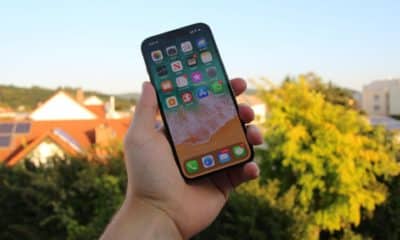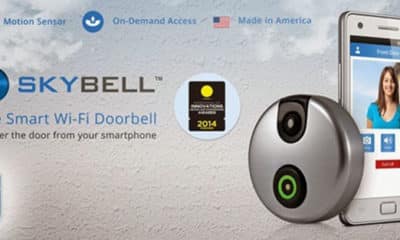Tablets
How To Screenshot On Tablet: Full Guide For All 5 Major Brands

Capturing information quickly and efficiently has become a necessity. Knowing how to screenshot on a tablet is invaluable for keeping records, sharing moments, or capturing vital information. With various operating systems and models, tablets offer multiple methods for taking screenshots. This guide provides detailed instructions for capturing screenshots on any tablet, ensuring you can save and share information effortlessly.
Screenshot Methods for Different Tablets
1. Apple iPad
Using Buttons
For most iPad models, capturing a screenshot is a straightforward process. Press and hold the top button and the volume up button simultaneously, then release. The screen will flash, and a shutter sound may occur, indicating a successful screenshot. The screenshot is automatically saved in your Photos app under ‘Screenshots’. This method is quick and convenient, especially when you need to capture something in a hurry.
For older iPad models with a Home button, press the top button and the Home button simultaneously.
Using AssistiveTouch
For users who need or prefer an alternative method, iPads offer AssistiveTouch. First, enable AssistiveTouch in your Settings under Accessibility. A small, circular button will appear on your screen. Tap this button, then select Device > More > Screenshot. This method is particularly useful for those who find the physical button combination challenging or for those who want a more precise way to capture screenshots.

2. Android Tablets
Standard Method
The standard method for Android tablets involves pressing and holding the power button and the volume down button simultaneously for a few seconds. Once you hear a shutter sound or see a screen animation, the screenshot has been captured. It will be saved automatically in your tablet’s gallery or photos app, typically in a folder labeled ‘Screenshots’. This method works across most Android tablets and is a quick way to capture your screen.
Using Gestures
Many modern Android tablets offer gesture-based methods to take screenshots for added convenience. These gestures may include swiping the screen with the palm of your hand or using a three-finger swipe. To enable and use these features, go to your tablet’s settings, and look for the ‘Motions and Gestures’ menu or a similar option. This feature is particularly handy for users who frequently take screenshots and prefer a more intuitive approach.
3. Windows Tablets
Keyboard Shortcut
Windows tablets provide a simple keyboard shortcut for screenshots. Press the Windows logo button and the Volume down button simultaneously. The screen will dim briefly to indicate a successful screenshot. This image is automatically saved in the “Screenshots” folder inside your “Pictures” library. This method is ideal for users who need to quickly capture their screen without navigating through menus.
Snipping Tool
The Snipping Tool is a versatile app available on Windows tablets. It allows you to select a portion of your screen to capture. To use it, open the Snipping Tool from the Start menu, select ‘New,’ and choose the area you want to capture. This tool is particularly useful for capturing specific parts of your screen, such as a particular image or segment of text.
4. Amazon Fire Tablets
Basic Screenshot
To take a screenshot on an Amazon Fire tablet, press and hold the power button and the volume down button simultaneously. Hold until you see a confirmation message or animation. The screenshot will be saved in your tablet’s internal storage, typically accessible through the Photos app. This method is quick and works across all Amazon Fire tablet models, making it easy for users to capture their screen at a moment’s notice.

5. Chrome OS Tablets
Full Screenshot
On Chrome OS tablets, capturing a full screenshot is done by pressing the Power + Volume down buttons simultaneously. The tablet will capture the entire visible screen area and save the screenshot in the ‘Downloads’ folder. This method is straightforward and efficient, especially for users who need to capture their entire screen for work or personal use.
Partial Screenshot
For more targeted screenshots, Chrome OS tablets often come with a Stylus tool. By using the Stylus, you can select “Capture region” from its menu to drag and select the specific area you want to screenshot. This method is highly beneficial for users who need to capture only a part of the screen, such as a specific image or section of a website.
Benefits of Screenshots
Screenshots are incredibly useful in our digital lives. They allow for instant capturing of information or images that might be difficult to download or copy otherwise. Screenshots can be used for a variety of purposes:
- Record Keeping: Keeping a visual record of important information, such as receipts, booking confirmations, or error messages.
- Sharing Information: Easily share what’s on your screen with others, whether it’s a high score in a game, a fascinating article, or a work-related document.
- Educational Purposes: Screenshots are great for creating tutorials, guides, or educational material, allowing you to show exactly what you’re referring to.
- Work Efficiency: In a work setting, screenshots can be used to quickly share ideas, report issues, or provide visual feedback.
Conclusion
No matter the type of tablet you use, taking a screenshot is a quick and easy process. Whether it’s an iPad, an Android tablet, a Windows tablet, an Amazon Fire tablet, or a Chrome OS tablet, each has its method or combination of methods to capture what’s on your screen. Understanding these techniques ensures you can capture important information, share your screen’s content, and keep a digital record of necessary details efficiently.
-

 Gadgets6 months ago
Gadgets6 months agoCan Dogs Use VR Headsets?
-

 Tech6 months ago
Tech6 months agoWhat Does “Voicemail Pending” Mean?
-

 Phones5 months ago
Phones5 months agoHow Do I Know if My Phone Supports AR?
-

 Tech5 months ago
Tech5 months agoDoes Astigmatism Affect Your VR Experience?
-

 Business5 months ago
Business5 months agoHow Do You Make an AR Without Coding?
-
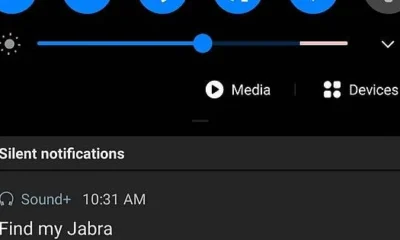
 Phones5 months ago
Phones5 months agoWhat To Do About That Weird Notification Sound on Android?
-
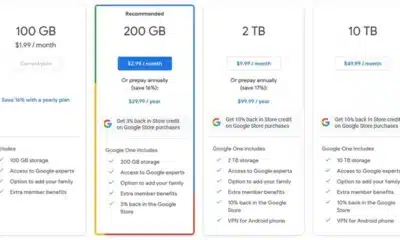
 Tech4 months ago
Tech4 months agoHow Can I Get Google Drive 1TB for Free?
-
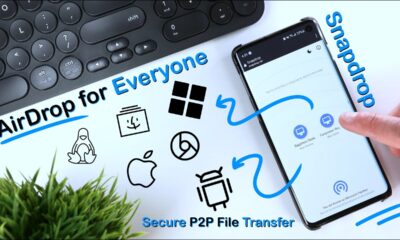
 Phones4 months ago
Phones4 months agoHow Does SnapDrop Work? – Instant File Sharing Made Easy

